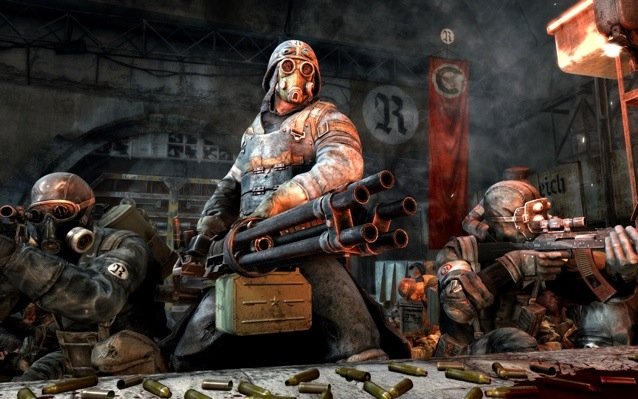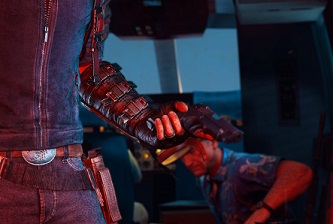

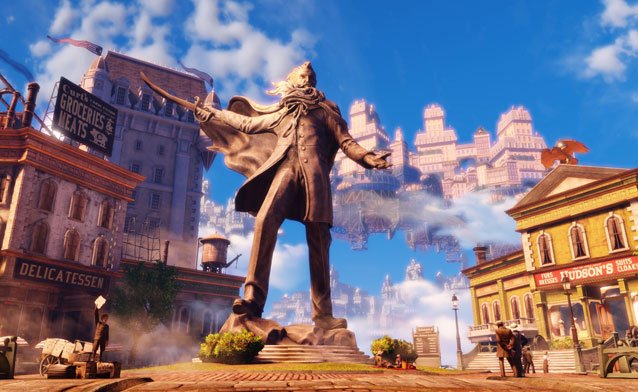
Editor's Note: Plot spoilers for BioShock Infinite follow.
A great story lives and dies with its villains. I never thought heroes to be terribly interesting—a hero usually is a blank slate, something for the audience to project themselves onto—meaning that the villain in such a story is usually the much more interesting character. The villain can actually have character where — some say ideally — the protagonist may not.
And there is the big difference between BioShock and BioShock Infinite. BioShock’s Jack was the blankest of blank slates. He didn’t have a voice (besides grunts), a face, or so much as the hint of his own character. For most of the game he even was quite literally driven by outside forces. Booker on the other hand? He’s one of recent gaming’s strongest characters. Face, voice and interior motivations all present and accounted for. BioShock lived through its strong villains. Andrew Ryan. Sander Cohen. Memorable stuff.
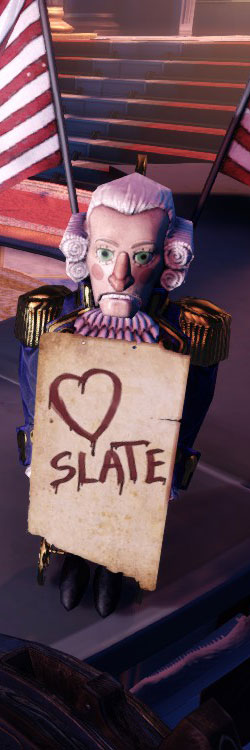 As for Infinite? Does anybody think Father Comstock will come even close to the long term reverence Andrew Ryan enjoys? Comstock is a pale figure in comparison. So is Fink, so is Slate. None of them gets close to being very memorable. Yes, Comstock has his moments of being an insane bigot driven by his religious belief. Each of the villains works all right within the context of the game. But unlike Ryan, there is nothing special about them. There have been plenty of crazy zealous Christian people cast as villains in popular culture. And Comstock doesn’t particularly stand out in that group. He’s functional, as a zealous antagonist, but not much more. Yes, Fink does have his crazy, Manchester capitalist moments too. And, well, Slate at least is a tragic figure, who, out of the three, actually has the most in terms of motivation and actual character. But still, he is no Sander Cohen. And don’t even get me started on Daisy “I should be named McGuffin” Fitzroy.
As for Infinite? Does anybody think Father Comstock will come even close to the long term reverence Andrew Ryan enjoys? Comstock is a pale figure in comparison. So is Fink, so is Slate. None of them gets close to being very memorable. Yes, Comstock has his moments of being an insane bigot driven by his religious belief. Each of the villains works all right within the context of the game. But unlike Ryan, there is nothing special about them. There have been plenty of crazy zealous Christian people cast as villains in popular culture. And Comstock doesn’t particularly stand out in that group. He’s functional, as a zealous antagonist, but not much more. Yes, Fink does have his crazy, Manchester capitalist moments too. And, well, Slate at least is a tragic figure, who, out of the three, actually has the most in terms of motivation and actual character. But still, he is no Sander Cohen. And don’t even get me started on Daisy “I should be named McGuffin” Fitzroy.
The writing of the game is focused on the protagonists. Booker. Elizabeth. The Luteces. They have the spotlight., and most of the witty and interesting dialog. The villains, the antagonists are mere tokens that are there because this is a video game, and that means we need some scum and villainy to throw a handful of gun toting goons into the protagonists’ path every now and then. And that just shows. Columbia is a game world that, with the exception for the four protagonists, the supposedly good guys, is an entirely artificial place. The villains are just that: very artificial, lacking personality, emotion, character, and drive—especially when compared to the intensity of the characters that populated BioShock’s underwater city of Rapture.
To top things off, Columbia might deal with problems and issues that are in a way closer to the real world, but—I guess—due to that fact and due to Irrational Games not wanting to offend anyone, religion, racism, capitalism and anarchism are presented in a very overdrawn, caricatured manner. It seems the developers want to go every step of the extra mile making sure that nobody could ever ever be offended by anything, presenting horrible and quite realistic scenarios and topics only to gloss them over with a bright gloss of humorous elements. Most of the time, anyway. Columbia is a lot less consistent there than Rapture ever was.
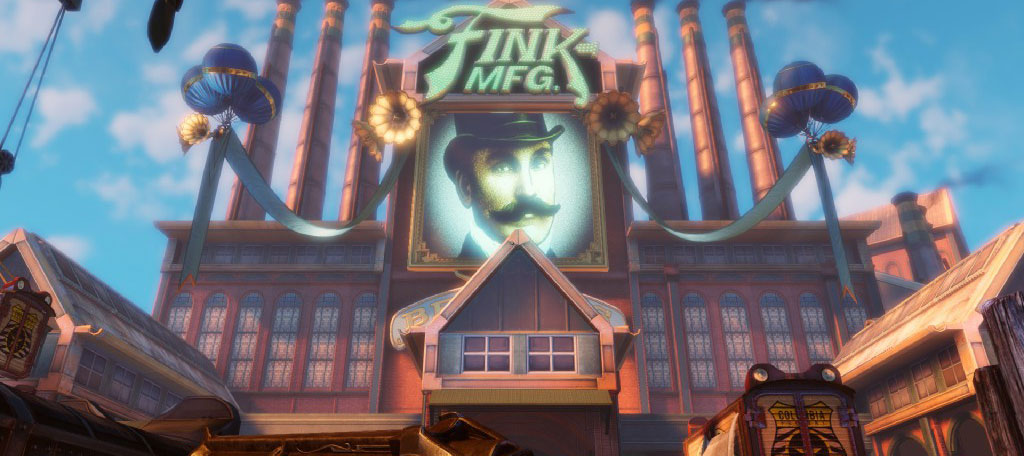
Rapture’s theme of libertarianism and failure thereof was a basic element that permeated all levels of the game. From the origin of the splicers, to the Big Daddies, to Adam, to Atlas, to Ryan. Rapture was thematically consistent. Columbia is anything but. And that inconsistency goes through to the antagonists. What is Infinite’s main, driving theme? Religion versus science? Not really. Religion versus reason? Conservatism versus anarchism? None of these themes, none of the underlying philosophies are properly explored. Instead there is the central narrative of Booker and Elizabeth and dimensional tears, dimensional travel and differences and all that jazz you’d get out of your average Dr. Who or Red Dwarf or Twilight Zone episode.
So all the bigger issues that could have been dealt with, that could have really elevated BioShock Infinite to something higher are delegated to mere background noise. As are the villains. At the end of the day I still like BioShock Infinite a lot, but it leaves me with that gnawing feeling of that it could have easily been so, so much better.
